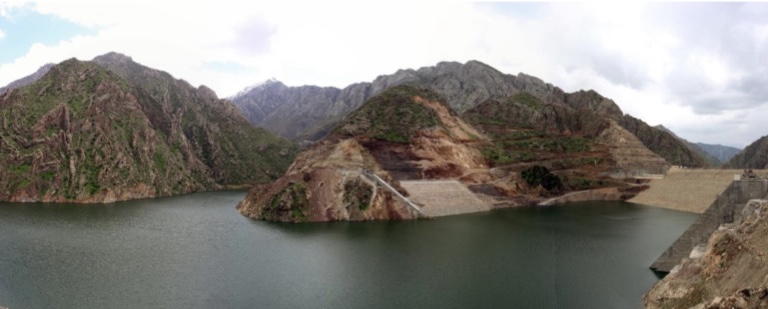The Save the Tigris and Iraqi Marshes Campaign has released a report on the impact of the Daryan Dam on the Kurdistan Region of Iraq. The Daryan Dam is a large dam currently under construction on the Sirwan River in Iran. The report sheds light on the controversial construction of dams for self-interest purposes in water-scarce areas, despite evidence of their significant negative impact on both local and regional levels. Locally, dams cause displacement and destruction of dam areas, while regionally they exacerbate water scarcity and reduce flow as a result of decreased water flow.
So far, there is very little available information about the Daryan Dam, despite its significant impact on Iraq. Therefore, this report aims to bridge this gap by providing a social and political analysis of the impact of the Daryan Dam on the Kurdistan Region of Iraq. The report is primarily based on qualitative research, including interviews with officials from the Kurdistan Regional Government, local officials from affected areas, non-governmental organizations, and academic experts.
The report was presented at the Norwegian Social Forum in Oslo, during a seminar organized by the Norwegian Society for International Water Studies (FIVAS) and attended by a representative from the Norwegian Ministry of Foreign Affairs and several stakeholders, on water crises due to large dams.
Between 20 to 30 percent of the annual flow of the Tigris River comes from Iran via the Sirwan River and the Diyala River. In recent years, due to Iranian water projects, the flow of water from the Diyala River has significantly decreased. The construction of the Daryan Dam on the Sirwan River in Kermanshah Province, Iran, will have a major impact on the flow of water to Halabja Province in the Kurdistan Region of Iraq.
The Daryan Dam, expected to be completed in 2018, will reduce the flow of water from the Sirwan River by up to 60 percent, affecting hundreds of thousands of people in Sulaymaniyah and Halabja. The decrease in water flow will lead to a crisis in drinking water and significantly affect the hydropower, fishing, and agriculture sectors in the Kurdistan Region. Furthermore, the decrease in water flow from the Sirwan River, known as the Diyala River in Iraq, will also have a significant negative impact on people and communities in central and southern Iraq.
With water scarcity expected to worsen in the coming decades due to continued negative effects of climate change, the consequences will be severe on food security, livelihoods, health, environment, industrial and economic development in Iraq as a whole.
The Save the Tigris and Iraqi Marshes Campaign believes that water is a resource that cannot be monopolized by any state, nation, or sect. Water should not be used as a political weapon, and water scarcity should not be a cause of conflict in the Mesopotamian region. Instead, water can be a tool for achieving sustainability, cooperation, and coexistence between the Kurdistan Region of Iraq and Iraq as a whole, with Iran, Turkey, and all their neighbors in the Mesopotamian region.
Since 2012, the Save the Tigris and Iraqi Marshes Campaign has been fighting against the construction of the Ilisu Dam on the Tigris River in Turkey, the Daryan Dam on the Diyala River in Iran, and other large dams built without consultation with Iraq and without any assessment of their negative impacts on humans and the environment. A struggle to preserve the cultural and environmental heritage of the Tigris River and the sustainable and equitable use of water for all.


Leave a Reply